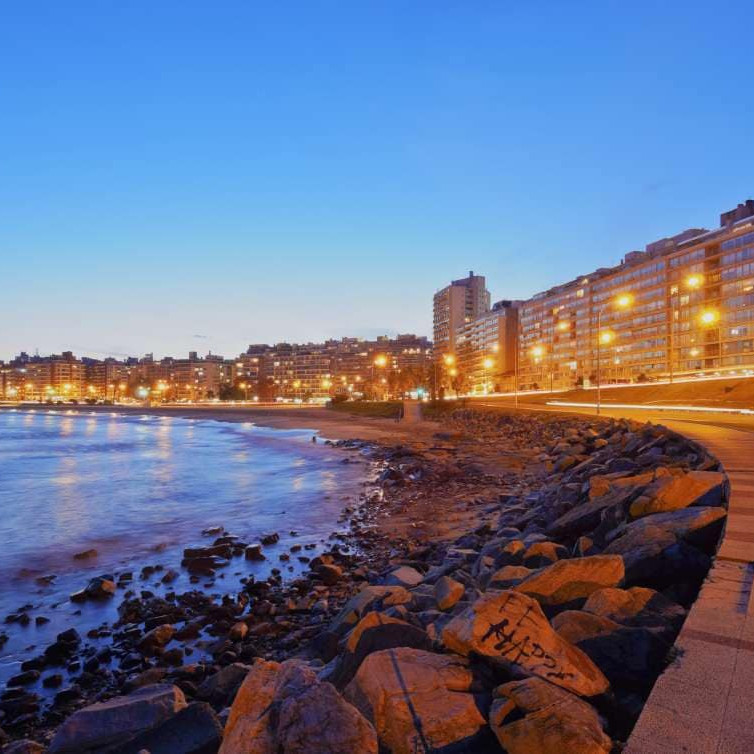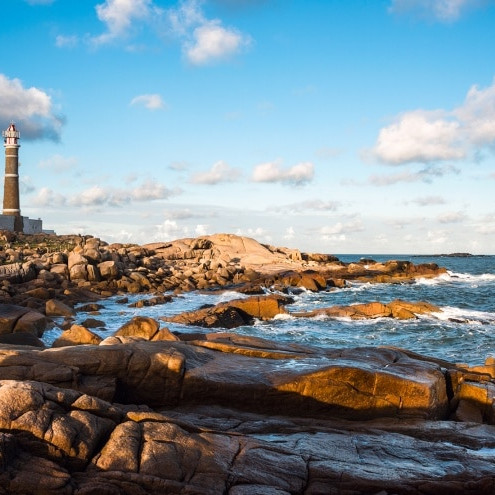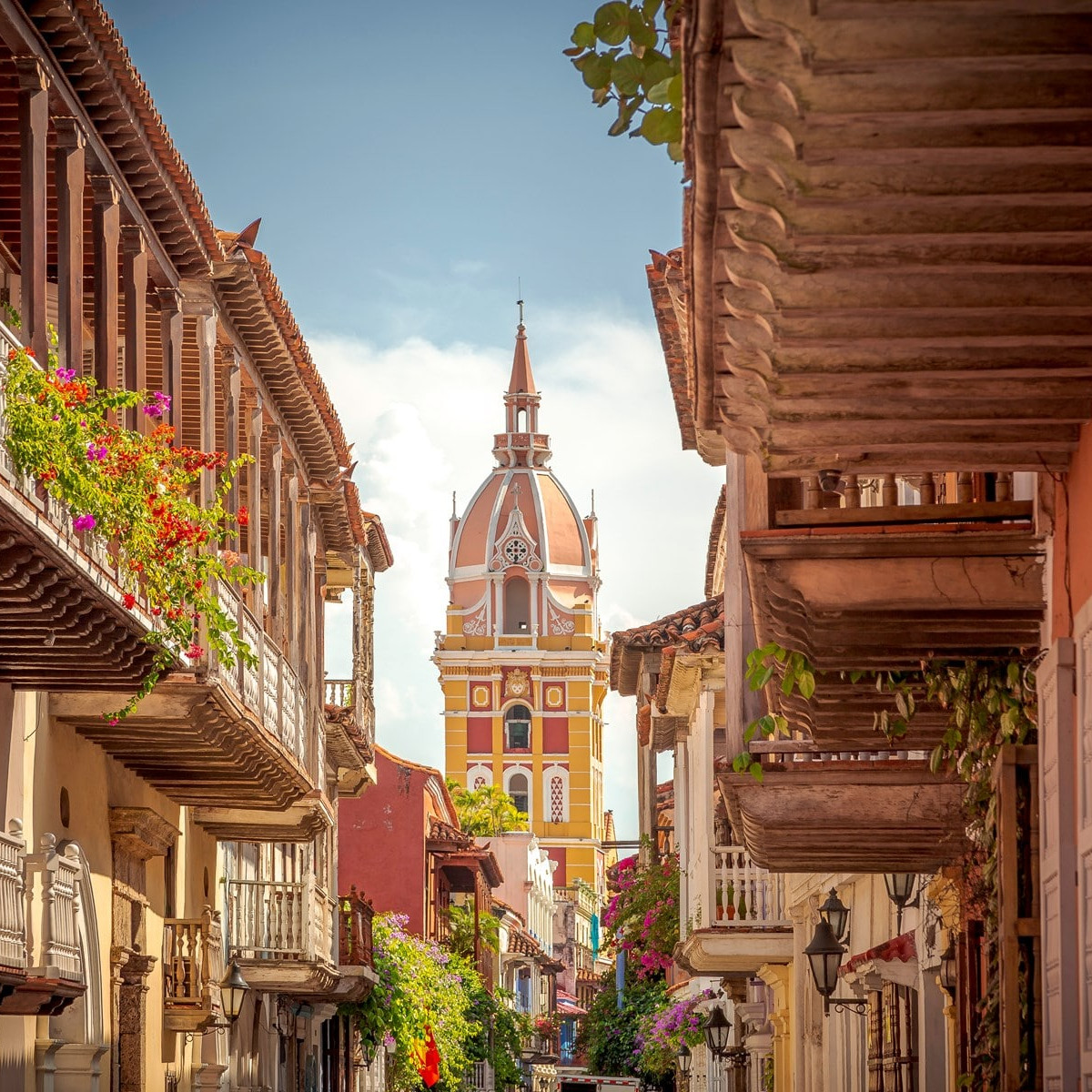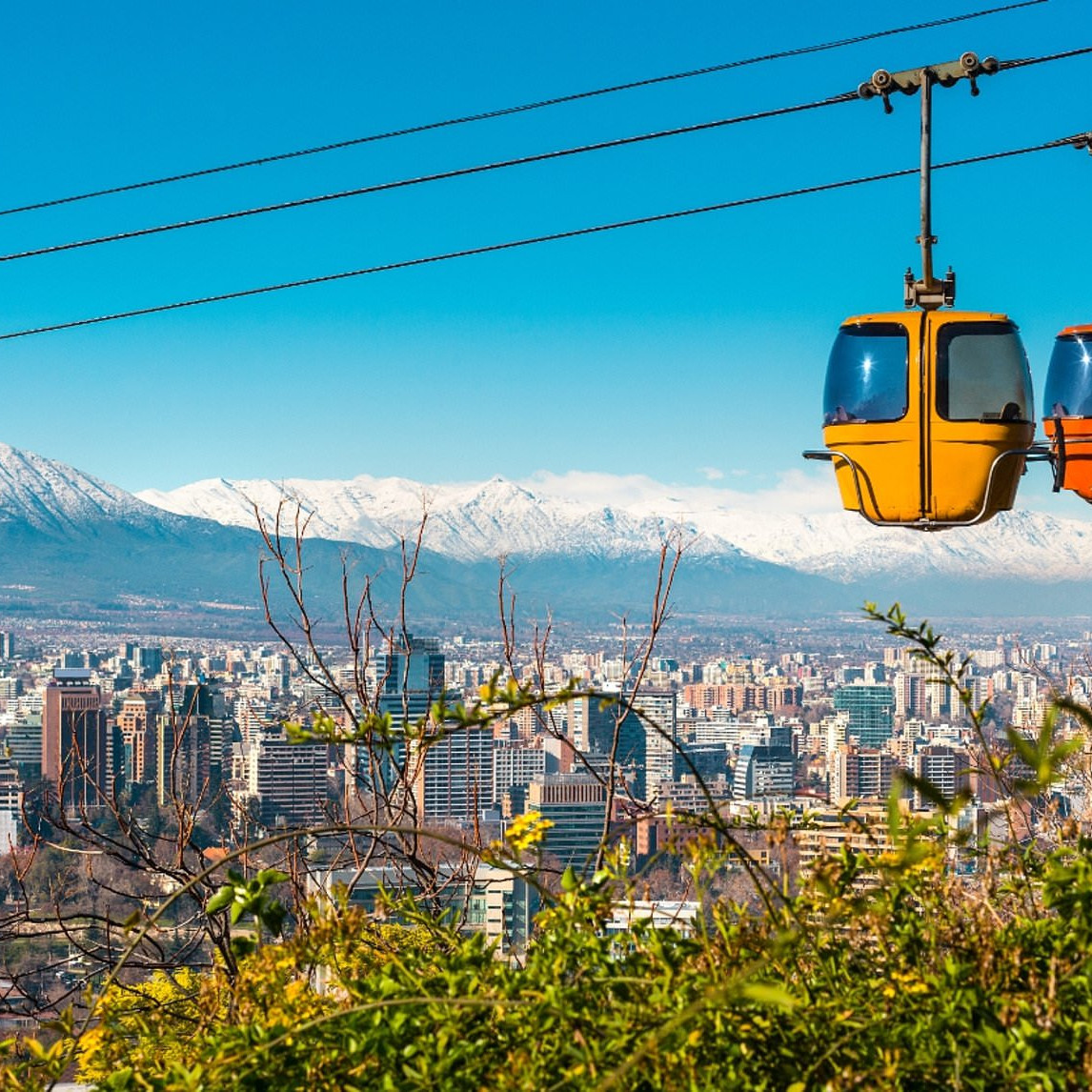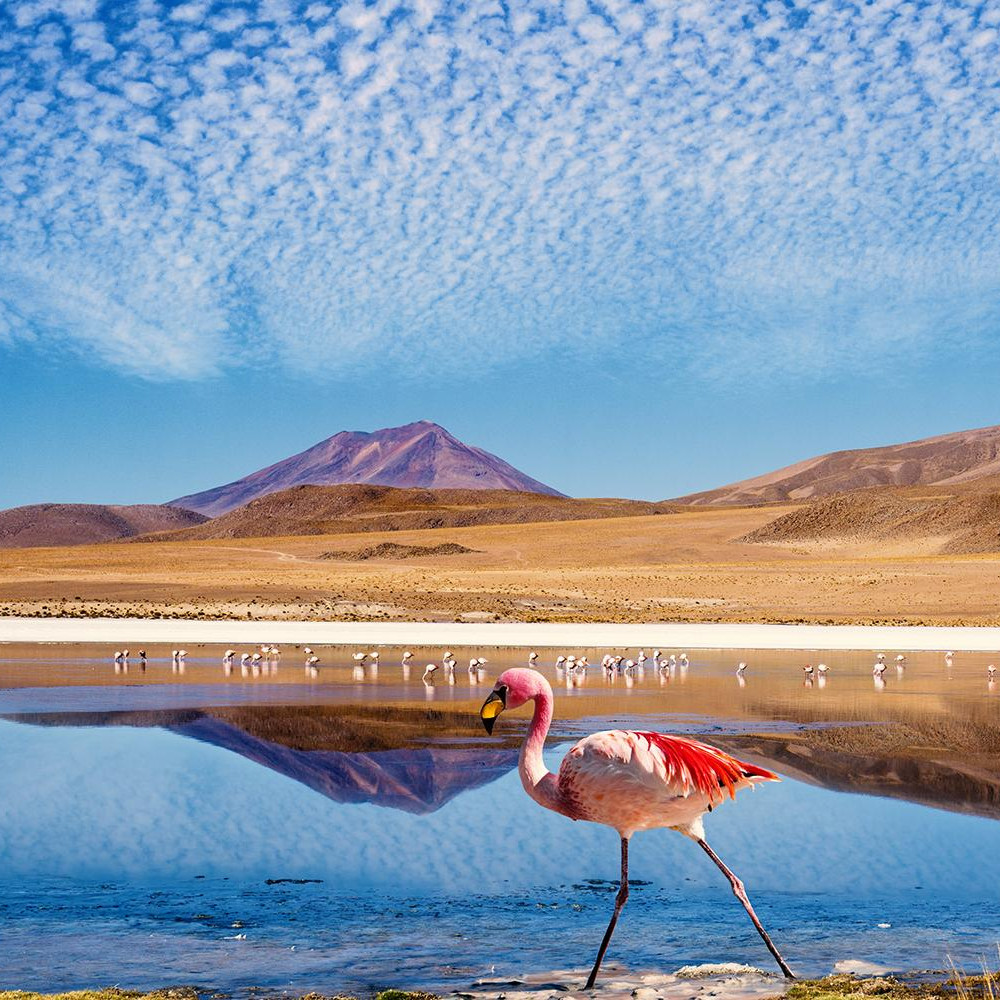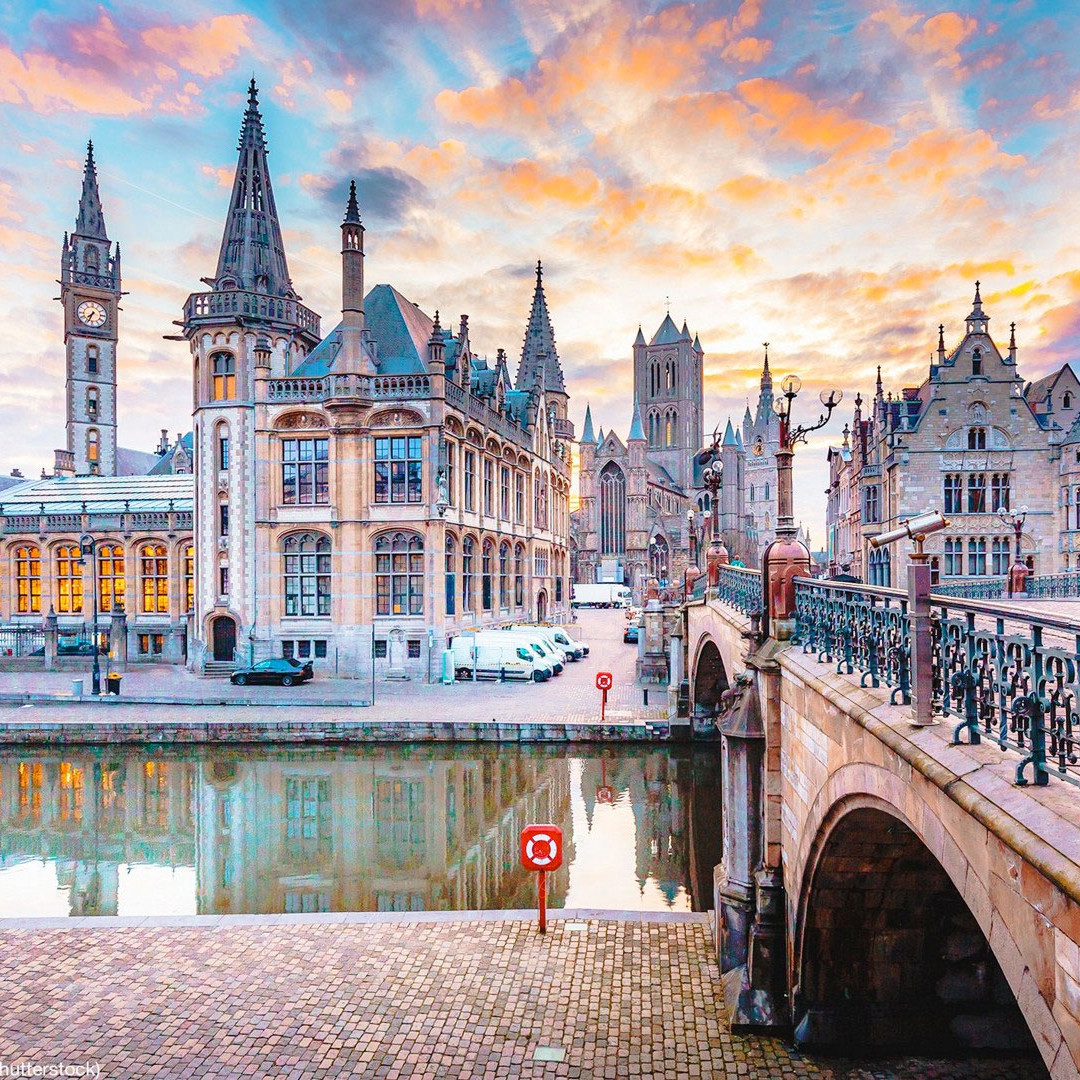Located in the southeastern region of South America, Uruguay is known as the “Switzerland of South America”, the hidden gem of the region and the second smallest country in South America. Uruguay beckons travelers with its charm, tranquility, and natural beauty. From its pristine beaches and diverse landscapes to its rich history and warm hospitality, Uruguay provides a unique and authentic experience for those seeking a quieter, yet enchanting destination in South America.
Why Visit Uruguay
LANDSCAPES & BEACHES
Despite its small size, Uruguay has inexhaustible natural landscapes and endless historical wonders. It is a summer destination, with over 410 miles (660 km) of Atlantic Coast, offering deserted beaches, natural meadows and extensive sandy areas. It is also a leader on the conservation industry, positioning itself among the countries with the best sustainability indicators.
PEOPLE
Uruguayans are known for their warmth and friendliness. The locals embrace a relaxed lifestyle, and visitors will feel welcomed by their genuine hospitality. Engaging with the people of Uruguay offers a chance to gain insight into their culture, traditions, and the values that make Uruguay such a welcoming destination.
COLONIAL ARCHITECTURE
ruguay’s rich history is reflected in its colonial architecture, particularly in cities like Colonia del Sacramento and Montevideo. Colonia del Sacramento, a UNESCO World Heritage site, enchants visitors with its cobbled streets, colorful facades, and charming colonial buildings. Montevideo, the capital city, showcases a mix of architectural styles, blending neoclassical, art deco, and modern designs.
WINE
Uruguay is one of the top five producers of wine in South America, with over 10,000 hectares of vineyards operated by approximately 270 wineries, most them are family businesses than have been making wine since the beginning of the industry in the country.

Located in the southeastern region of South America, Uruguay is known as the “Switzerland of South America”, the hidden gem of the region and the second smallest country in South America. Uruguay beckons travelers with its charm, tranquility, and natural beauty. From its pristine beaches and diverse landscapes to its rich history and warm hospitality, Uruguay provides a unique and authentic experience for those seeking a quieter, yet enchanting destination in South America.

Why Visit Uruguay
LANDSCAPES & BEACHES
Despite its small size, Uruguay has inexhaustible natural landscapes and endless historical wonders. It is a summer destination, with over 410 miles (660 km) of Atlantic Coast, offering deserted beaches, natural meadows and extensive sandy areas. It is also a leader on the conservation industry, positioning itself among the countries with the best sustainability indicators.
PEOPLE
Uruguayans are known for their warmth and friendliness. The locals embrace a relaxed lifestyle, and visitors will feel welcomed by their genuine hospitality. Engaging with the people of Uruguay offers a chance to gain insight into their culture, traditions, and the values that make Uruguay such a welcoming destination.
COLONIAL ARCHITECTURE
ruguay’s rich history is reflected in its colonial architecture, particularly in cities like Colonia del Sacramento and Montevideo. Colonia del Sacramento, a UNESCO World Heritage site, enchants visitors with its cobbled streets, colorful facades, and charming colonial buildings. Montevideo, the capital city, showcases a mix of architectural styles, blending neoclassical, art deco, and modern designs.
WINE
Uruguay is one of the top five producers of wine in South America, with over 10,000 hectares of vineyards operated by approximately 270 wineries, most them are family businesses than have been making wine since the beginning of the industry in the country.
- Name: Oriental Republic of Uruguay
- Capital: Montevideo
- Official Languages: Spanish
- Currency: Uruguayan peso
- Time Zone: UTC−3
- Name: Oriental Republic of Uruguay
- Capital: Montevideo
- Official Languages: Spanish
- Currency: Uruguayan peso
- Time Zone: UTC−3
Bucket List
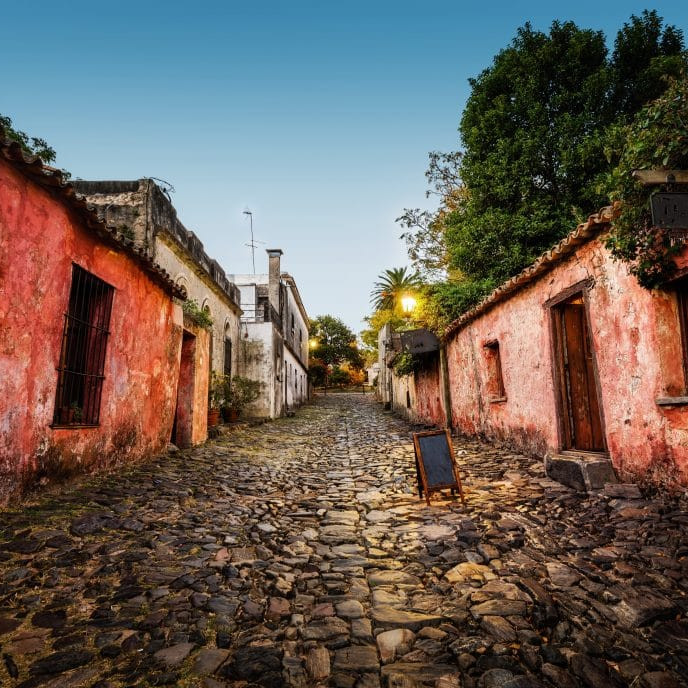
Visit Colonia del Sacramento
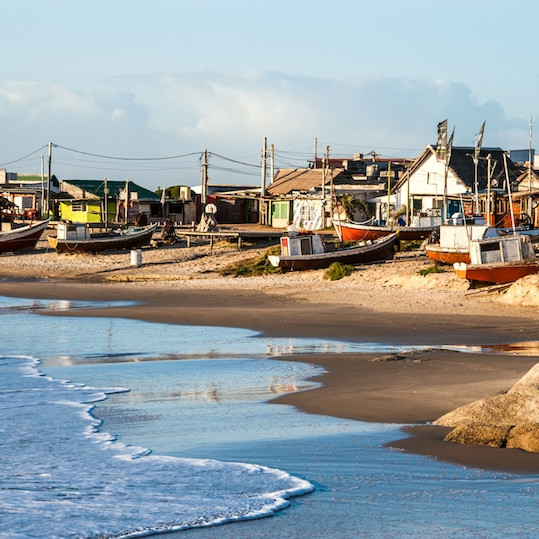
Hit the beach in Punta del Diablo
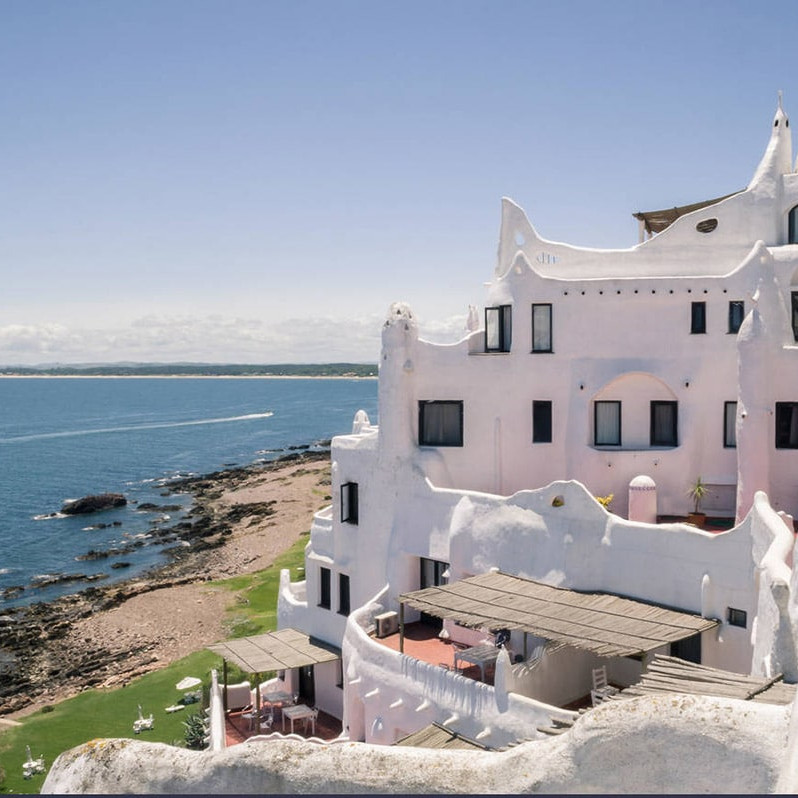
Explore Punta del Este

See “The Hand Sculpture” in Punta del Este
What to expect
LANGUAGE
Spanish is the official language in Uruguay. English is also spoken to some extent in tourist areas and by individuals in the service industry, but it is less commonly understood in rural areas. Knowing a few basic Spanish phrases can greatly enhance your travel experience and interactions with locals.
ELECTRICITY
In Uruguay the standard voltage is 230 V and the frequency is 50 Hz. That’s the standard voltage in UK, Europe, Australia and most of Asia and Africa.
CURRENCY
The Uruguayan peso is the official currency in Uruguay. Foreign currencies, like dollars, argentinian pesos and euros, might be accepted at tourist attractions and hotels, but they won’t be accepted at other establishments. Credit cards are widely accepted, and you can exchange your money at any bank or withdraw directly from the ATM. Cash is recommended, especially in the countryside. 1 USD equals 38 pesos (as of 2023)
CLIMATE
Uruguay enjoys a temperate climate all year round, with mild temperatures and rainfall distributed throughout the year. Seasons are well defined, with warm summers and chilly winters.
SAFETY
Uruguay is very safe, the safest country to visit in entire Latin America. Crime rates are low, ranked 37th on the Global Peace Index, and violent crime is pretty much non-existent. However, common sense is recommended like anywhere else.
How to get around
- Domestic Flights: Uruguay has a well-connected domestic flight network, with regular flights between major cities like Montevideo, Punta del Este, and Colonia del Sacramento. Domestic flights offer convenience and time savings for those traveling longer distances within the country.
- Buses: Buses are a popular mode of transportation in Uruguay, providing an extensive network that connects cities, towns, and rural areas. There are different types of buses available, ranging from local buses for short distances to long-distance buses with comfortable seating for intercity travel. The bus network is reliable, affordable, and offers a chance to enjoy the scenic countryside during your journey.
- Car Rental: Renting a car provides flexibility and convenience, allowing you to explore Uruguay at your own pace. Several international and local car rental companies operate in major cities and airports. Uruguay has well-maintained roads and highways, making self-driving a viable option for travelers. It’s important to have a valid driver’s license and familiarize yourself with the local traffic rules and regulations.
- Trains: Although Uruguay’s train network is limited, there is a picturesque tourist train called Tren de los Pueblos Libres that runs between the cities of Paso de los Toros and San José. This scenic train ride offers a unique way to experience Uruguay’s rural landscapes and charming towns.
- Ferries: Uruguay has regular ferry services that connect various cities and towns along its coastline. One popular ferry route is between Buenos Aires, Argentina, and Montevideo, Uruguay, offering a scenic and enjoyable journey across the Rio de la Plata.
- Taxis: Taxis are readily available in urban areas and can be hailed on the street or found at designated taxi stands. In major cities like Montevideo, taxis use meters to calculate fares, while in smaller towns, negotiated fares are common. It is advisable to ensure the taxi has a visible identification card and to agree on the fare before starting the journey.
- Cycling and Walking: Uruguay is a relatively small country with a well-maintained road infrastructure, making it suitable for cycling and walking enthusiasts. Exploring cities and towns on foot or renting a bicycle allows for a more intimate and leisurely experience, especially in places like Colonia del Sacramento with its pedestrian-friendly streets.
Public transportation, such as buses and taxis, is the most common way to get around Uruguay, providing reliable and affordable options for traveling within the country. Renting a car or taking domestic flights offers additional flexibility and convenience, particularly for longer distances or exploring remote areas. Overall, the transportation infrastructure in Uruguay ensures easy accessibility and allows visitors to explore the country’s diverse landscapes, charming towns, and vibrant cities with ease.
Visa Policy & Passport
Uruguay has a relatively relaxed visa policy for tourists, with many countries enjoying visa-free entry.
Citizens of 85 countries are allowed to enter Argentina without a visa for a period up to 90 days, including all European Union citizens, Andorra, Argentina, Armenia, Australia, Barbados, Bahamas, Belarus, Belize, Bolivia, Brazil, Canada, Colombia, Costa Rica, Chile, Dominica, Ecuador, El Salvador, Georgia, Grenada, Guatemala, Guyana, Honduras, Hong Kong, Iceland, Israel, Jamaica, Japan, Korea Republic, Liechtenstein, Malta, Macau, Malaysia, Mexico, Monaco, Mongolia, Montenegro, New Zealand, Nicaragua, Norway, New Zealand, Panama, Paraguay, Peru, Russian Federation, Saint Kitts and Nevis, San Marino, Saint Vincent and The Grenadines, Serbia, Seychelles, Singapore, South Africa, Switzerland, Trinidad and Tobago, Ukraine, United Arab Emirates, United Kingdom Of Great Britain and Northern Ireland, United States of America, Vatican city and Venezuela.
For citizens of countries not included in the visa-exempt list, Uruguay offers a visa-on-arrival option. Travelers from countries such as China, India, Russia, and Turkey can obtain a tourist visa upon arrival at the airport in Uruguay. The visa-on-arrival allows for a stay of up to 90 days. However, it is advisable to check the latest visa regulations and requirements with the nearest Uruguayan embassy or consulate before traveling to ensure you have the correct documentation.
For those who wish to stay in Uruguay for longer periods or engage in activities such as work, study, or starting a business, a different type of visa is required. This may include a work visa, student visa, or investment visa. The requirements and application process for these visas can vary depending on the specific circumstances and nationality of the applicant. It is recommended to consult the Uruguayan embassy or consulate in your home country for detailed information and assistance regarding the appropriate visa category.
It is important to note that visa policies and regulations can change over time, so it is always advisable to verify the latest information before traveling to Uruguay. Additionally, it is essential to ensure that your passport is valid for at least six months beyond the intended duration of your stay in Uruguay. By being aware of the visa requirements and following the necessary procedures, travelers can have a smooth and enjoyable visit to Uruguay.
SUBSCRIBE!
Are you a globetrotter? Join our platform and get exclusive travel tips, getaways and more!
Colombia
Travel Colombia, a country that has everything to ensure a unforgettable adventure. The country is blessed with an array of landscapes..
Chile
Travel Chile, well known for its wine industry, its incredibly diverse landscape, featuring a variety of climates and geography and a rich..
Brazil
Travel Brazil, the largest country in both South America and Latin America. It is a fascinating country, filled with warm and hospitable..
Bolivia
Travel Bolivia, home to 40% of all animal and plant species in the world. The country is blessed with an incredible diverse nature, from..
Argentina
Travel Argentina, a country king in diversity of all kinds, offering a variety of features and attractions to please every type of traveler..
Belgium
Travel Belgium, is a small country known as the world capital of the beer and the chocolate. The is also home to amazing architecure and..
Chile
Travel Chile, well known for its wine industry, its incredibly diverse landscape, featuring a…
Brazil
Travel Brazil, the largest country in both South America and Latin America. It is a fascinating…
Argentina
Travel Argentina, a country king in diversity of all kinds, offering a variety of features and…


